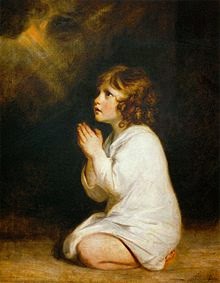Readings: Acts 28:16-20,30-31; Ps 11; Jn 21:20-25
My!
Today's readings sure give us a lot on which to reflect, to pray, and to preach;
so, I decided just to turn it over to the Holy Spirit and ask for His help.
You see, today’s readings
complete the Easter season by presenting us with the final verses of both the
Acts of the Apostles and John's Gospel. In a sense they sum up all that’s gone
before.
Luke
began and ended his Gospel in Jerusalem, and it's in that city, too, where he
began his second book, the Acts of the
Apostles. In Acts we follow Paul on his journeys through the Greek-speaking
world, as he establishes local churches and calls people to Christ while moving
inexorably toward his destination, toward Rome – in one sense, the new
Jerusalem.
In
today's reading we encounter Paul in the final days of his ministry. Imprisoned
in Rome, he awaits execution at the hands of Nero, the emperor who will also
take the life of Peter. And it's there, in Rome, Luke tells us, that Paul "with
complete assurance and without hindrance proclaimed the Kingdom of God and
taught about the Lord Jesus Christ" [Acts 28:31]. Yes, Paul remains
the true disciple as he completes his earthly journey of faith.
Our
journey of discipleship is much the same – one of discovery, and praise, and
wonder, and stumbling, and prophecy fulfilled – a journey filled with a lifetime of
experiences, the good, the bad, and the ugly. Like Paul, we, too, sometimes
encounter obstacles or outright barriers, or simply head off in the wrong
direction, only to be called back by the Holy Spirit. Just like Paul, we need
to rest along the way and regain our strength, for discipleship is no easy
road. Jesus knows this, for He experienced it too. He knows our weaknesses, all
those little pieces of us that crave attention, all that call us away from Him.
And so, He comes to us again and again, giving us a taste of that which awaits
us.
How
did Paul put it to the Jews who visited him in Rome, and to us? We share in the
hope of Israel, a hope fulfilled in Jesus’ death and resurrection [See Acts
28:20]. Keep the faith, Paul says, don’t let all the stuff of our lives
distract us from the eternal.
Peter,
too, learned and preached this. But as John’s Gospel comes to a close, we find
Peter just beginning his formation as a disciple. Filled with questions, Peter
still awaits the fulness of the Holy Spirit. In his heart Peter knows he’s been
given a very special task – “Feed my lambs…feed my sheep” [Jn 21:15,17]
– and no doubt he fears all it will bring.
Suspecting
Jesus has given him the hardest road to travel, he points to young John, the
fair-haired boy, the one whom Jesus loved, and asks, “What about him?” Peter is
so devilishly human, isn’t he? He’s so much like you and me, so worried about
himself, always comparing himself to others, unaware that God doesn’t compare,
that God sees each of us exactly as we are.
Jesus
tells Peter this, in effect saying: “Look, Peter, don’t worry about John, or my
plans for him. It’s really none of your business. Just do the work I’ve given
you.” And to ensure Peter understands, he adds, “You follow me!” [Jn
21:22]
How
often are we just like Peter, so caught up in what others are doing that we
neglect the work God has given us.
What
is God calling you to do – not next week or next month – but what’s His will
for you today, right now? Life is a gift, brothers and sisters, and it can end
at any moment. If we take each of those
moments that God gives us, and simply follow Him, always doing His will in all
those seemingly little things, one moment to the next, He will lead us to the
big things.
Even though we’re struggling and broken and torn and sinful, God continues
to call us to the work He has for us. He calls us in the moment, in the little
things of our lives, in the things He knows we can handle.
This is what Divine Mercy is really all about: it’s about God’s
love bringing us back to Him, repeatedly, one tiny piece at a time.
And discipleship? It’s nothing complicated, just a total offering
of self, an offering of all those pieces, an offering that God willingly
accepts. Through His love, His mercy, and the working of the Holy Spirit, He
makes us whole again so we can do our part to complete Christ’s mission on
earth.
Yes, indeed, we tend to
complicate things, but Jesus keeps it simple: Just follow me!






